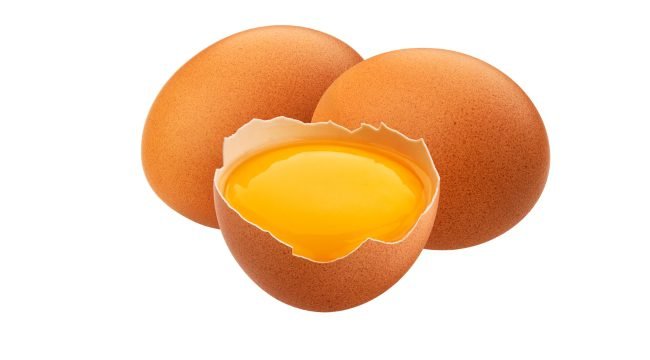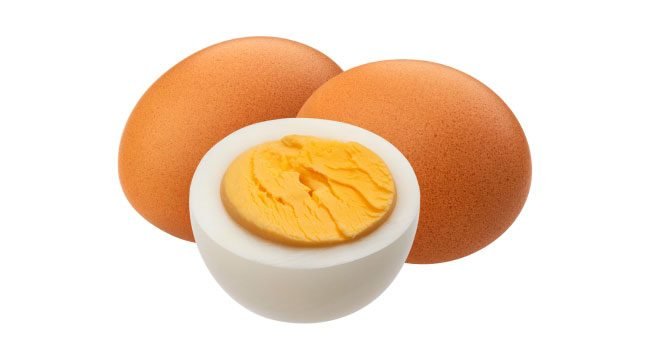Can Dogs Eat Eggshells? As a loving pet owner, you always want to ensure your furry friend is getting the best nutrition possible. And when it comes to supplementing their diet, you might have heard about the benefits of incorporating eggshells. But can dogs eat eggshells? The answer is a resounding “yes”!
Not only are eggshells a fantastic source of amino acids, vitamins, and calcium, but they can also help prevent health complications associated with old age, such as arthritis. In this article, we’ll delve deeper into why eggshells can be a great addition to your dog’s diet and how to incorporate them safely. So, sit back, relax, and let’s learn more about the benefits of eggshells for your furry friend.
Dogs and Eggshells–Can They Eat Them?
As a pet owner, you want nothing but the best for your furry friend’s health and wellbeing. And when it comes to their diet, you might have wondered if dogs can eat eggshells. After all, eggshells are a natural source of calcium and other essential nutrients that can benefit your pup’s health.
The good news is that dogs can safely eat eggshells, and they can even help promote strong bones and teeth in your furry friend. However, there are some things you need to keep in mind to ensure your dog’s safety and wellbeing when feeding them eggshells. In this article, we’ll explore the benefits of feeding your dog eggshells, how to prepare them, and some precautions to keep in mind. So, let’s crack open this topic and learn more about dogs and eggshells!
Related Post: Can Dogs Eat Tuna?
Nutritional Content of Eggs for Dogs

Eggs are a fantastic source of essential nutrients for dogs. The three main components of an egg are the yolk, white, and shell, each with unique nutritional benefits.
Yolk
The egg yolk contains a variety of important vitamins and minerals, including Vitamins A, D, E, K, B1, B6, B12, Niacin, Riboflavin, Choline, and Folic Acid. Additionally, egg yolks are high in fatty acids, which help preserve body cells and boost immunity in dogs.
White
Egg white is a great source of amino acids, which are crucial for muscle and body development. The amino acids found in egg whites include histidine, leucine, isoleucine, arginine, methionine, threonine, valine, tryptophan, phenylalanine, and lysine.
Shell
Eggshells contain vital minerals, such as calcium and phosphorous, which are essential for bone development in dogs. Other minerals found in eggshells include potassium, sodium, zinc, manganese, iodine, selenium, copper, chloride, iron, and magnesium.
Health Benefits of Eggs for Dogs-Can Dogs Eat Eggshells?

Adding eggs to your dog’s diet can have several health benefits, including:
Strong Bones and Teeth
The calcium and phosphorous found in eggshells are essential for bone development in dogs. Consuming eggs can help maintain healthy teeth and bones, especially in ageing dogs.
Improved Coat and Skin Health
Egg yolks contain fatty acids that can help improve the quality and texture of your dog’s coat and skin. The essential fatty acids found in egg yolks can also help reduce inflammation, which can reduce itching and irritation.
Boosted Immunity
The vitamins and minerals found in eggs can help boost your dog’s immune system, making them less susceptible to illness and disease.
Muscle Development
The amino acids found in egg whites are crucial for muscle development and maintenance in dogs. Consuming eggs can help maintain strong and healthy muscles, especially in active dogs.
How Often Can Dogs Eat Eggs? And How Many?
The number of eggs your dog should eat depends on various factors, such as size, age, and activity level. In general, an average egg contains 60 calories, 6 grams of protein, and 4 milligrams of fat. While eggs are a healthy treat for dogs, it’s essential to seek advice from your vet to determine how often and how many eggs your dog should consume.
A Step-By-Step Guide To Making Eggshell Powder For Your Dog
While eggshells are an excellent source of calcium, feeding your dog whole eggshells can be harmful, as they may choke on them or not digest them well. However, grinding eggshells into a powder can make it easier for dogs to digest and benefit from their nutritional content.
Here’s a step-by-step guide on how to make eggshell powder for your dog:
- Collect, wash, and several dry eggshells.
- Preheat an oven tray to around 95 degrees Celsius for ten minutes, then spread the shells on the tray to dry.
- Let the shells cool down.
- Use a blender or food processor to grind up the shells into a powder form.
- Store the eggshell powder in a tightly closed container in the refrigerator. The powder can stay fresh for up to two months.
It’s essential to remember that eggshell powder is a supplement and not a substitute for a balanced and healthy diet. You can add about a teaspoon of eggshell powder to your dog’s food per day, depending on their size and dietary needs. However, it’s essential to consult with your veterinarian before introducing eggshells or any other supplement into your dog’s diet.
Related Post: Fall in Love with Silver Labs: A Stunning Variation of the Labrador Retriever
Can Puppies Eat Eggs and Eggshells?

When it comes to feeding puppies, it is essential to provide them with a balanced and healthy diet. Eggs and eggshells may be an option for your puppy, but it’s important to know which part of the egg is safe and beneficial for them.
While eggshells are generally safe for puppies to eat, they are not an excellent source of calcium for building strong bones. Eggshells only contain calcium carbonate, which is not well-absorbed by puppies. Moreover, eggshell powder lacks essential minerals like magnesium and phosphorus, making it unsuitable for puppies.
However, cooked eggs can be a nutritious addition to your puppy’s diet. They are a great source of protein, Vitamin A, and linoleic acid, which help keep your puppy’s coat healthy and shiny. Eggs also contain other essential nutrients like Vitamin D, which supports bone formation and boosts immunity, and choline, which is necessary for the development of the fetal brain. Moreover, egg yolks are known to reduce the risk of cataracts in dogs.
It is important to note that raw eggs for dogs may pose a risk of salmonella, which can be harmful to your puppy’s health. So, it is best to serve cooked eggs to your puppy. When cooking eggs, avoid using fatty oils as they can add unnecessary calories to your puppy’s diet. Boiled eggs are a better alternative. Additionally, ensure you only provide a small amount of cooked egg to your puppy to avoid them gaining weight. Always remember to provide your puppy with a balanced and healthy diet, and consult with a veterinarian if you are unsure about what to feed them.
Related Post: Get Ready to Fall in Love: 15 Teddy Bear Dogs that Will Melt Your Heart!
Can Dogs be Allergic to Eggs and Eggshells?
Yes, dogs can be allergic to eggs and eggshells. As we know, eggs are a good source of protein, but sometimes, proteins can cause allergic reactions. If you see your dog having gastrointestinal (GI) issues like diarrhea and vomiting or skin problems like itchiness around the paws, ears, and other regions, then it may be a sign of an allergy. It is best to consult a veterinarian as soon as possible.
Is Feeding Your Dog Too Many Eggshells Harmful?
Yes, feeding your dog too many eggshells is not recommended. Eggshells are supplements and not a replacement for a balanced and healthy diet. Overfeeding your dog with eggshells may lead to an imbalance in their diet, which can negatively impact their skeletal metabolism, causing a calcium-phosphorus deficiency. This deficiency can lead to chronic kidney disease, and high levels of calcium in the blood can cause a condition called hypercalcemia.
Other Ways to Feed Your Dog Eggshells
Apart from feeding your dog eggshells in powdered form, you can also boil or roast them before grinding and adding them to your dog’s food. Boiling or roasting eggshells ensures that there are no harmful bacteria like salmonella that may be harmful to your dog. However, it’s essential to note that eggshells should be used as supplements and not as a replacement for your dog’s regular meal. Before making any decision concerning feeding eggshells to your dogs, consult a veterinary doctor.
supplement and not a replacement for a balanced and healthy diet. Remember to always
Conclusion:
Eggs are a fantastic source of nutrients for dogs. They contain essential fatty acids, vitamins, minerals, and amino acids that support your dog’s overall health and wellbeing. The eggshell powder is also an excellent supplement that provides your dog with calcium and phosphorus to promote strong bones, teeth, and muscle development.
However, it’s important to remember that feeding your dog eggs should be done in moderation and under veterinary supervision. While eggs are generally safe for dogs, some dogs may have allergies or underlying health conditions that may make it unsafe for them to consume eggs.
By understanding the nutritional content and health benefits of eggs for dogs, you can make an informed decision about whether to incorporate eggs and eggshell powder into your dog’s diet. With the right approach and guidance from your veterinarian, you can ensure that your furry friend stays healthy and happy for years to come.

